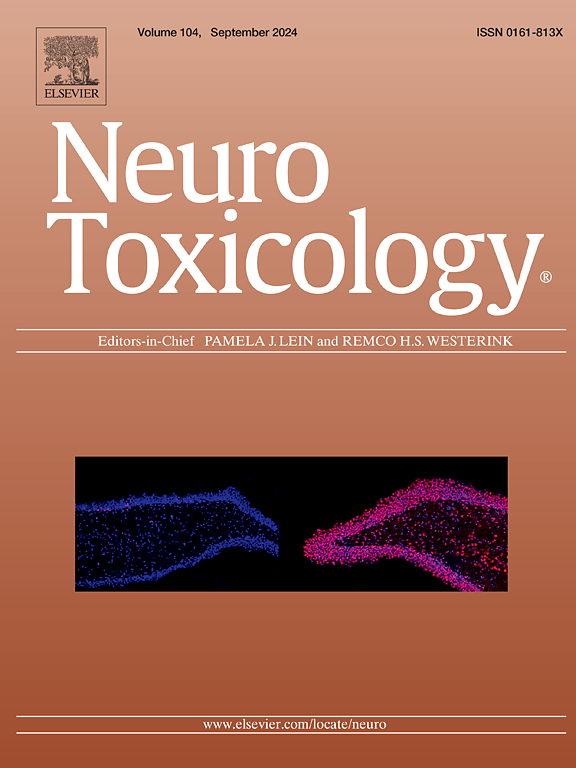婴儿认知家庭环境在产前铅对儿童语言的影响中的调节作用
IF 3.9
3区 医学
Q2 NEUROSCIENCES
引用次数: 0
摘要
在生命早期,包括怀孕期间,接触铅对神经发育是有害的。尽管公共卫生举措导致铅接触水平总体下降,但铅仍然是一个重大的环境危害,需要采取创新措施来减轻生命早期铅的负担。本研究探讨了积极的产后社会经验(积极的照顾形式)和丰富的认知家庭环境是否能调节产前铅对儿童神经发育结果(包括语言技能、努力控制和执行功能技能)的影响。我们利用了一个分析样本(N = 107),该样本来自一个前瞻性的母婴队列。产前铅通过产妇尿液测量,通过观察方法测量阳性护理,通过有效问卷测量认知家庭环境。结果显示,在认知家庭环境较差时,产前铅对儿童语言的影响呈负相关(β=-0.32, p = 0.04);在认知家庭环境较丰富时,产前铅对儿童语言的影响不显著(β=0.20, p = 0.16)。这种缓冲效应在努力控制或执行功能技能的儿童结果中没有观察到。我们的结果鼓励未来研究提供丰富的认知家庭环境,作为减轻产前铅暴露对早期儿童语言技能的有害影响的一种手段。本文章由计算机程序翻译,如有差异,请以英文原文为准。
Infant cognitive home environment as a moderator for the association of prenatal lead on child language
Exposure to lead during early life, including in pregnancy, is toxic to neurodevelopment. Though public health initiatives have resulted in an overall reduction in lead exposure levels, lead remains a significant environmental hazard, requiring innovative efforts to mitigate the burden of early life lead. This study explored whether positive postnatal social experiences in the forms of positive caregiving and a rich cognitive home environment moderate the associations of prenatal lead on child neurodevelopmental outcomes including language skills, effortful control, and executive function skills. We leverage an analytic sample (N = 107) drawn from a prospective cohort of mother-infant dyads. Prenatal lead was measured from maternal urine, positive caregiving from observational methods, and cognitive home environment from a validated questionnaire. Results reveal a negative association of prenatal lead on child language when the cognitive home environment in infancy was poor (β=-0.32, p = 0.04) but not when the cognitive home environment in infancy was rich (β=0.20, p = 0.16). This buffering effect was not observed for the child outcomes of effortful control or executive function skills. Our results encourage future research into the provision of a rich cognitive home environment as a means of mitigating the detrimental effects of prenatal lead exposure on early child language skills.
求助全文
通过发布文献求助,成功后即可免费获取论文全文。
去求助
来源期刊

Neurotoxicology
医学-毒理学
CiteScore
6.80
自引率
5.90%
发文量
161
审稿时长
70 days
期刊介绍:
NeuroToxicology specializes in publishing the best peer-reviewed original research papers dealing with the effects of toxic substances on the nervous system of humans and experimental animals of all ages. The Journal emphasizes papers dealing with the neurotoxic effects of environmentally significant chemical hazards, manufactured drugs and naturally occurring compounds.
 求助内容:
求助内容: 应助结果提醒方式:
应助结果提醒方式:


